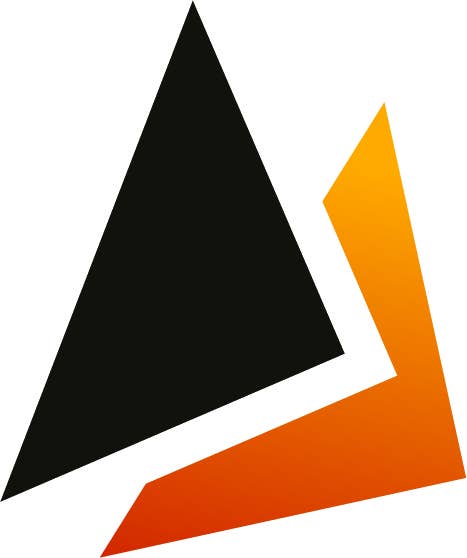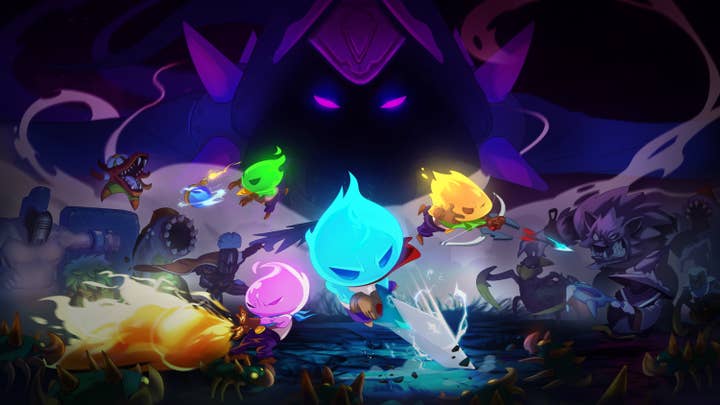The deeper change behind Asmodee Digital's rebrand
Managing director Nicolas Godement explains why Twin Sails Interactive is branching out beyond digital board games
Asmodee Digital, the long-running purveyor of digital board game adaptations, has had something of an overhaul.
The most obvious example is its recent rebrand, with the company announcing that as of last month it is now operating as Twin Sails Interactive. Less than a week after the new brand was unveiled, we sat down with managing director Nicolas Godement at Gamescom, who tells us the name was "the face of a deeper change that's been going on for about 18 months."
"As Asmodee Digital, we were known for digital board game conversions, primarily on mobile and PC," he says. "For the past year or two, we've been expanding our range of titles to games that are just games – brand new video games, third-party, indie, AA, so not just digital board games. It's something we've done for strategic reasons, and we wanted a name that both conveyed the fact that we've brought in a wider range of games but also spoke to our values of who we already are."

Godement says the two ships depicted by Twin Sails' logo can be seen as the publisher and its development partners venturing out together, adding that the pastime of sailing "brings up the notions of togetherness, passion, and maybe a bit of adventure," which he cites as company values.
While Asmodee Digital undeniably carved its niche in the realm of tabletop gaming, as did its parent of the same name, it is also true that the games division has been branching out, bringing strategy and turn-based titles like Terraforming Mars and Gloomhaven to market. Twin Sails aims to take this further.
Alongside the rebrand announcement, the publisher unveiled two new titles: Studio Nul's tycoon management game News Tower and Lumorama's 2D physics-based platformer Amberial Dreams. The latter in particular represents a significant departure for the Twin Sails team, bringing the business into a more traditional video game space where titles rely on action and most fast-paced antics than the comparatively relaxing mechanics of board games. A quick glance at the company's line-up trailer shows there's more variety still to come, with titles like top-down action game Ember Nights (pictured above) and 'guns with sorcery' adventure RPG Dark Envoy.
Godement says that bringing different types of game to market will build on the skills he and his team developed as Asmodee Digital, where he says the company essentially built what he calls a 'publishing engine.'
"We don't have internal developers, but we have lots of producers, brand managers, PR managers and so on," he says. "We don't think that should be restricted to one genre. It's very unlike development – I was a developer before and I think it's good for devleopers to specialise in one genre [to] build up expertise. But for a publisher, we feel it's a little different so we felt that broadening our horizons to different genres was a way to optimise the way we use that publishing engine, that team, and work on games that maybe speak to more players.

"It's also a way of bringing new content into Asmodee that wouldn't otherwise be part of our company, as well as reaching new players we wouldn't usually reach."
There's another significant factor behind this change; in December 2021, Twin Sails' parent Asmodee was acquired by Embracer for €2.75 billion.
"Suddenly video games were way more important to Asmodee than they had ever been," says Godement. "Not that they weren't important before, but suddenly it's super important for us to understand video games, to have a presence, to do business in this space."
That's not to say Embracer has been steering Asmodee and its video games division away from its roots. On the contrary, Godement says the firm has just as much freedom as it did prior to the acquisition.
"The things you hear about Embracer, how hands off yet supportive they are – it's exactly that," he says. "For us, it doesn't create any form of constraint on a daily basis, other than financial reporting for the markets. So if you ask the finance team, maybe you'll get a different answer, but if you ask anyone in the gaming team, there's no restraint and a lot of opportunities.
"Suddenly we get access to a network of tens of thousands of games professionals that we can share information and best practices with. We can do projects together – we've already announced that Saber is going to port Gloomhaven to consoles – so how awesome is it to have such a great company on our game? [It's] lots of opportunities and no constraints."
Naturally, Embracer's ownership also opens up access to a wealth of popular intellectual properties. Asmodee already fared well in this regard when it comes to tabletop, but Embracer has been snapping up hit games franchises for years – in its most recent wave of acquisitions, it purchased Midde-Earth Enterprises and with it the rights to JRR Tolkien's famous fantasy series.
"Maybe we'll get a chance to work on those at some point," says Godement. "We already have a Lord of the Rings game in our portfolio, but maybe we could have another one."
"Suddenly video games were way more important to Asmodee than they had ever been"
With any rebranding comes the need to re-educate. Asmodee established itself as a renowned brand in the tabletop market, both physically and digitally, but Twin Sails is arguably as broad a name as its portfolio so it might be hard for players to know what to expect. Godement, however, remains optimistic.
"Being able to announce before Gamescom and meet with partners and potential partners here, I feel like that transition will actually be pretty fast," he says. "We're not hiding the fact we're Asmodee, we're proud to be part of Asmodee, it's a fantastic company. So in terms of branding and visibility, I don't think we face too many challenges.
"The challenge is more transitioning your business model from one genre specifically to more genres, to taking on games that are already in development and you publish them. It's not new to us anymore, we've been doing this for 18 months, but initially, yes, learning how to select those games, building up the process, that was a lot of work. Still is."
The Twin Sails team encompasses around 30 people, so Godement is keen to walk before the newly rebranded publisher runs, estimating that the company will limit itself to three to five games launched per year.
"We want to do quality work, we want to scale gradually," he explains. "If in ten years we've got 500 people, sure, we'll publish more games. Or maybe we won't, we'll just publish bigger games."
In terms of what the publisher is looking for, Godement says Twin Sails will concentrate on premium games for console, PC and mobile that are "middle-scale, top indie to AA." The team is also keen to find experiences with plenty of replay value that get players booting up every day and titles with innovative game design.
"There are things we wouldn't do, like survival horror," he continues. "That's very hardcore, very harsh – we have nothing against that, it's just not something we're comfortable with as a company. Or sims that are very realistic, super difficult to make and super difficult to understand – I don't think we would go there.
"Mostly it's about the team. We like teams that are receptive to our way of working, that are aware that we can be disruptive to the development process but in the end you will have a better game."
Finally, he emphasises that the board game connection remains very much open. While Twin Sails doesn't handle it directly, there is scope for particularly successful games to get the tabletop treatment from Asmodee in future.
"Even before the Embracer acquisition, one of our studios – Fantasy Flight Games – has always been known for bringing video games brands into board games, like Fallout, Civilization and XCOM. So it's something we've always done, and now that we're part of Embracer it's probably something everyone wants to do more of."


